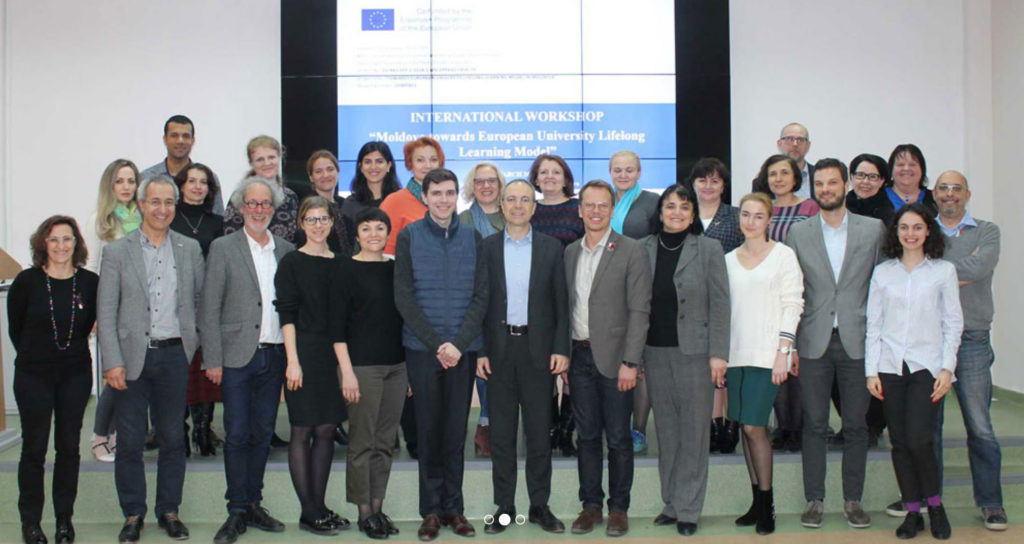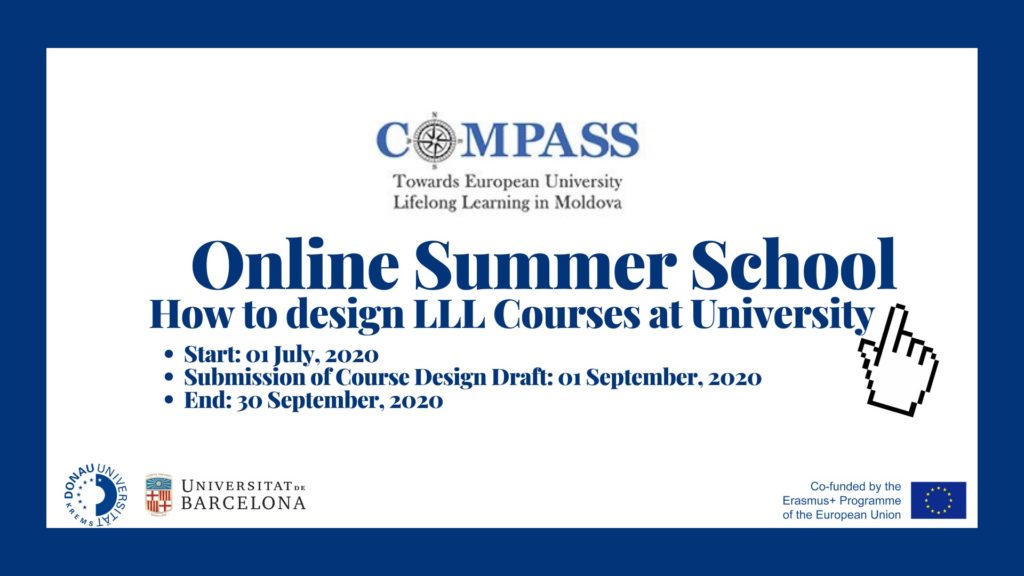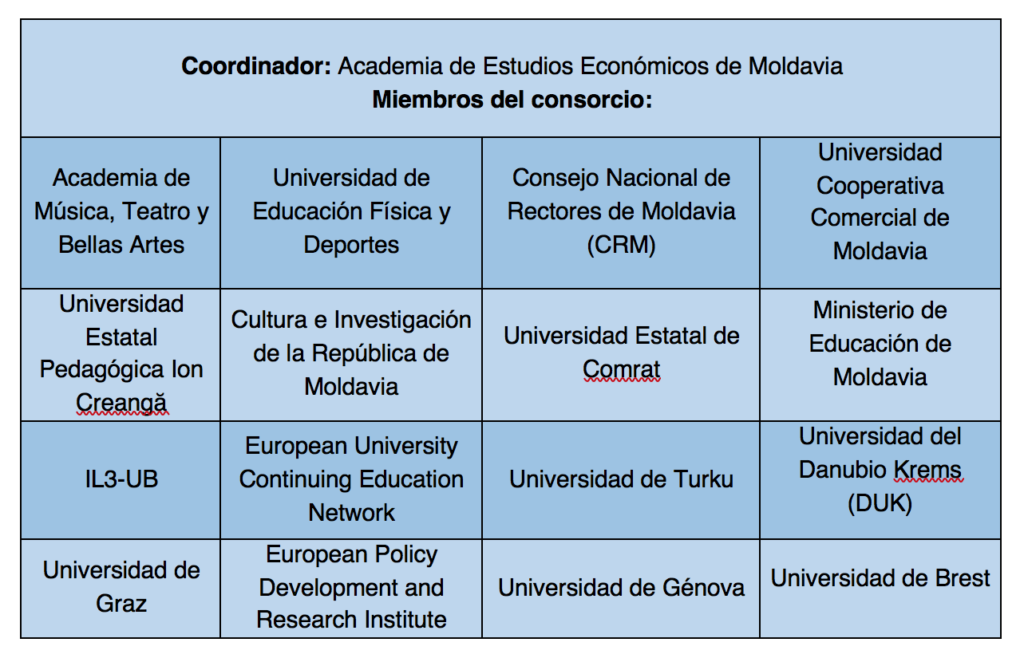The European Union has LifeLong Learning (LLL) as one of its priorities as it considered vital for the upskilling of the professionals and their capacity to adapt to challenging economic situations. To this end, collaboration among European countries is promoted and European policies on LLL are put in place to enable its implementation in different countries. Like the Compass project.

Background
The offering of University Lifelong Learning in Moldova is not yet well established as there is no specific roadmap policy regarding its implementation. Different institutions in Moldova offer LLL courses but these are included in the curricula and traditional structures of the general educational offering.
IL3 has more than 25 years of experience in LLL with an educational offer of more than 300 programmes in different areas of knowledge. Its mission is to offer opportunities for personal and professional growth and enable it students to be more competitive in the market.
IL3 is part of the consortium of the COMPASS project, aimed to create framework in order to reform LLL for Moldavian Higher Education Institutions. IL3 is contributing to the project by providing experiences, lessons learned and best practices in LLL.
Enhancement of institutional capacities for implementation of Lifelong Learning reform
One of the actions aiming at strengthening the Moldovan institutional capacities for the implementation of the Lifelong Learning (LLL) reform was a series of training sessions targeting Moldovan Higher Education (HE) staff. These training sessions were initially designed as on-site, face-to-face sessions but due to the Covid-19 crisis, an on-line course was developed.
IL3-UB together with DUK University and the University of Graz were the responsible partners to design and carry out the COMPASS Online Summer School as an alternative to train HE staff in Moldova through a Small Private Online Course. The School started on the1st of July and ended on the 1st of October 2020,and was attended by 80 participants. The course consisted of 18 hours of notional learning time for participants with the support and feedback of tutoring teams from Barcelona, Krems and Graz.

The tutoring teams created a design procedure and guided participants through the different steps. From the choosing the topic and defining their target learners and previous knowledge to describing learning outcomes and choosing the best pedagogical approach, sources and assessment methods.
Upon completion of the Summer School, participants were able to design their own lifelong learning course. A total of 30 LLL course designs were submitted for evaluation and feedback. Participants received a written feedback on their course designs and also one-to-one virtual sessions were organized for oral feedback and discussion.
Best practice and the opportunity of the Covid19 crisis
The design of the COMPASS Online Summer School was though as an alternative solution to the impossibility to carry out the face-to face training. During this pandemic crisis we have all witness the fast digitalization of education which far from being counterproductive, in most cases proved to be highly effective. In the case of the Online Summer School, this was highly evaluated by participants but also consisted of an opportunity to use resources and digital tools that maybe would not have been used in face-to-face sessions. In this sense, the course fulfilled implicitly another capacity development objective which was the digital up-skilling of the participants.
Some of the tools and platforms used were the following:
- Moodle
- Articulate Rise
- Padlet
- Miro
- Jumpboard
- Mentimeter
- Learning Snacks
The impact of Capacity Building actions
Capacity building actions are proven to have a high impact both on individuals and organizations. Most participants of the Summer School felt that the course provided them with new competencies and skills to design effective LLL courses for their students and found the experience to be very empowering.
«We still have little experience in planning programs, previously their content was «standard». Now, as we plan our course, we must answer the question of how my course will help students achieve their goals. Thanks for the interesting information!»
«Next, when developing the LLL course, I will be involved in identifying new / various digital tools to be added to the educational process. Your suggestions will really help me design the course.»
«Thanks to COMPASS I got acquainted with the PADLET tool. Now I will use it in my work, thanks.
Furthermore, capacity building actions also have an impact on the enablers as they promote reflection on their own methods and practices. As Gemma Mas states about the experience: “IL3-UB participation in offering and assessing the Summer School has reminded us that during all stages of the instructional design process it is important to bear in mind the target group description (including gains and pains) and the expected learning outcomes. Do not design a course from the content perspective, do it thinking on your future participants (student-centre approach).”










